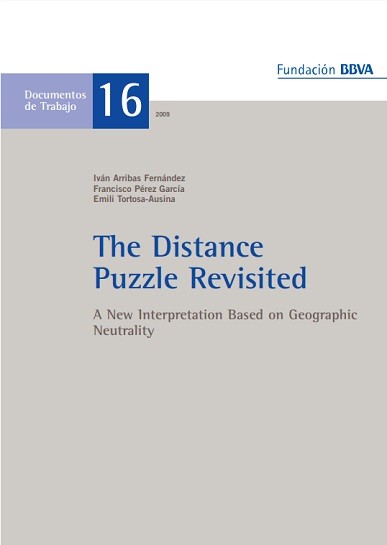
PublicationWorking Papers
The Distance Puzzle Revisited
A New Interpretation Based on Geographic Neutrality
One of the best-established empirical results in international economics is that bilateral trade decreases with distance, despite the reductions in the costs of trade brought about by globalization. This working paper proposes an explanation to this apparent contradiction (labeled as the distance puzzle). It hinges on the concept of geographic neutrality, which is used to construct international trade integration indicators for two different scenarios, namely, when distance matters and when it does not.
The results indicate that the importance of distance varies greatly across countries, as revealed by disparate gaps between distance-corrected and distance-uncorrected trade integration indicators for different countries. Some factors rooted in the literature explain away the discrepancies, but their importance varies according to the trade integration indicator considered—trade openness or trade connection.
